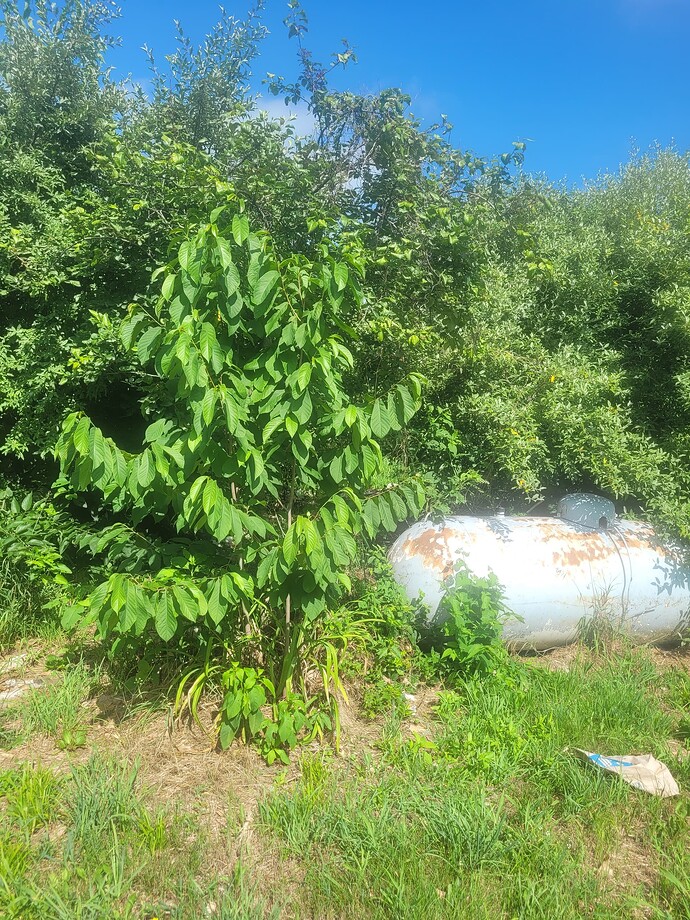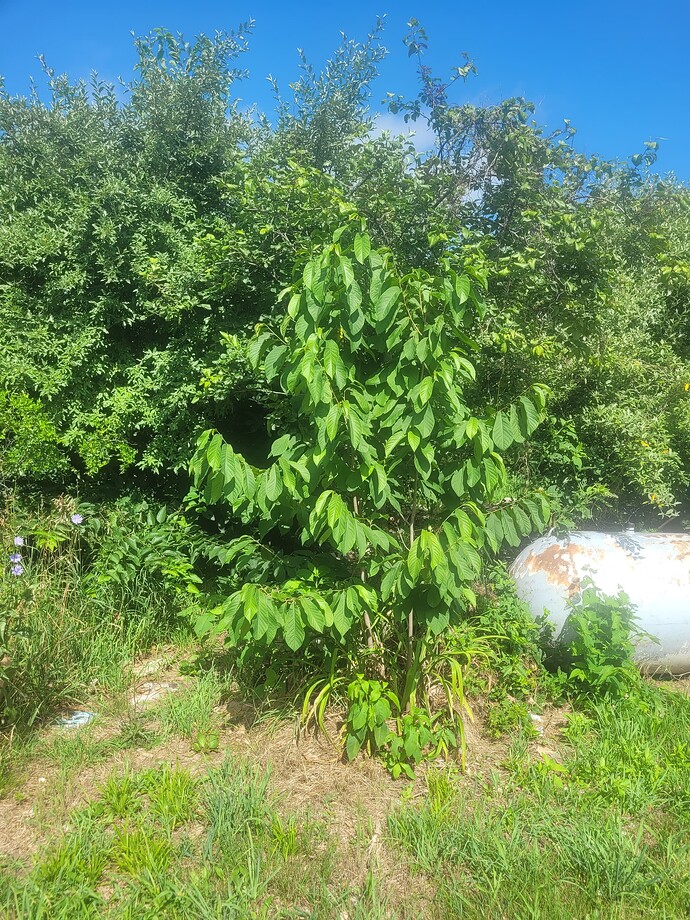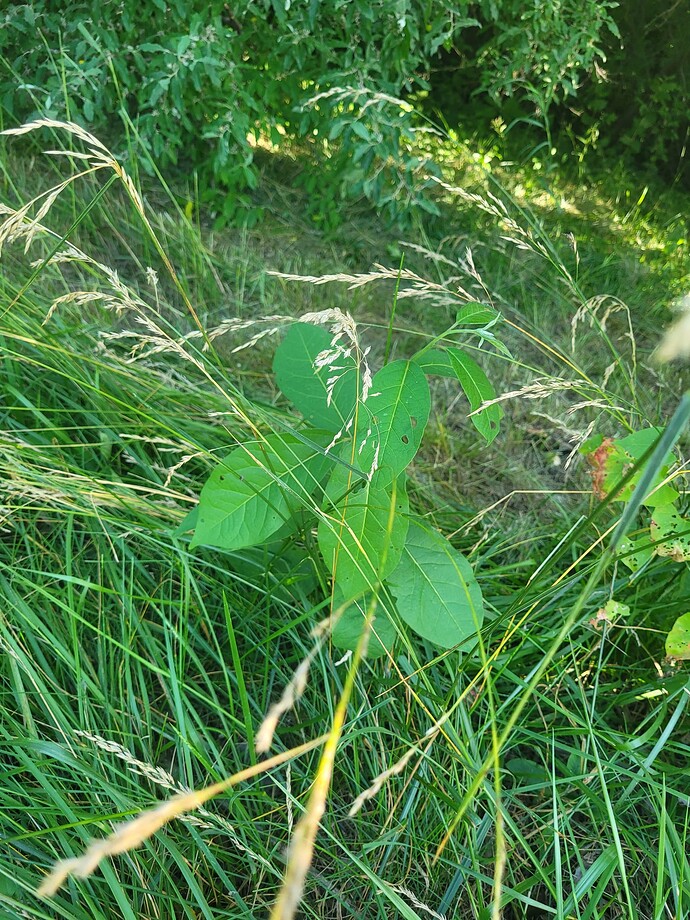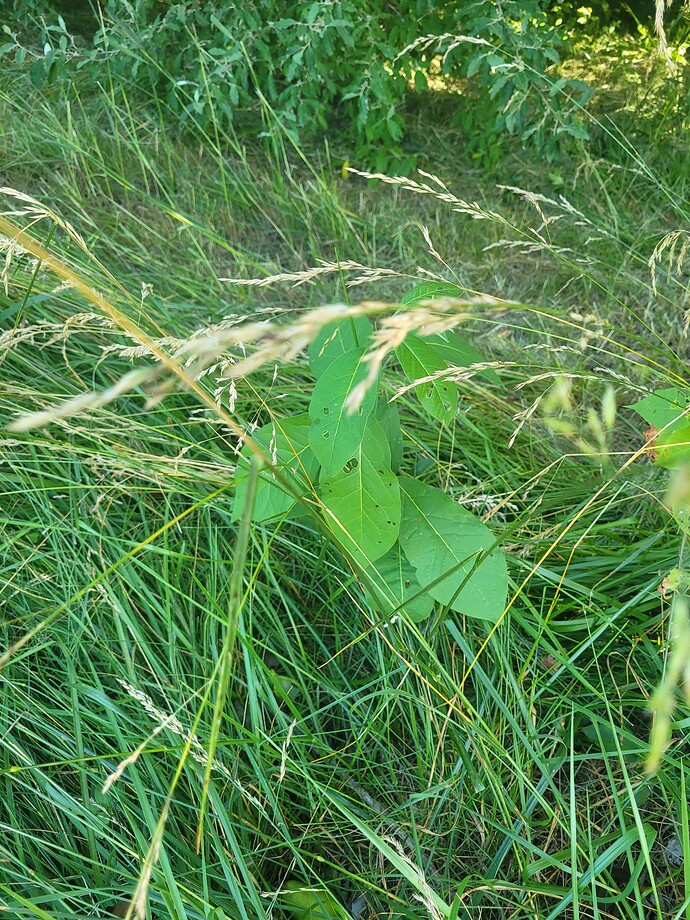Companions can be good if they are of the nitrogen fixing and soil improvement types
In this thread
I posted this and its true
Reaching for the sky - 9’ on its way to 30’ seedling . Notice the autumn olive in the background im using to feed it.
Newest member of the family i just sprouted this year. Notice the autumn olive im using to feed and shade the baby of the family.
These huge rapidly growing pawpaw above are upland types. They are easy to grow and have smaller fruit. These differences are often not understood by academia since pawpaw are knew to them. In my family we have hundreds of years of experience growing them. I was still using a bottle when i tasted my first pawpaw. Academia thinks in terms of variety. Im not the only one left who knows the difference, particularly around missouri , arkansas, kentucky and Tennesse. The old families like mine pass these things down. This thread discusses it
Pawpaw - understanding pollination and seedling variety
These must have more water and they are lowland types. I came up with creative ways to grow both
It may not be companion planting in the traditional since. Legumes are long known as nitrogen fixers and clover and other grasses are great at it. Trees or bushes like buffalo berry, autumn olives and others are good at it also. Im not a pawpaw expert obviouslly i live in Kansas but in the ozarks of arkansas and Missouri my family taught me the difference. Many people in those areas are actually from Kentucky and Tennessee and parts of my family are no different. They tell you about pawpaw from a hundred years ago like it was yesterday. My uncle grew my grandmothers grandmothers plum. He died from old age a few years ago. These people age to like to ninety + typically and so sometimes you realize your looking at something from 200+ years ago. The story typically includes an obscure fact then it hits you what they are saying. In one story they said then your great great grandfather climbed the tree to spot for the enemies. Were those persimmon trees growing up there? Then you suddenly realize we are discussing the civil war from the 1850s.



